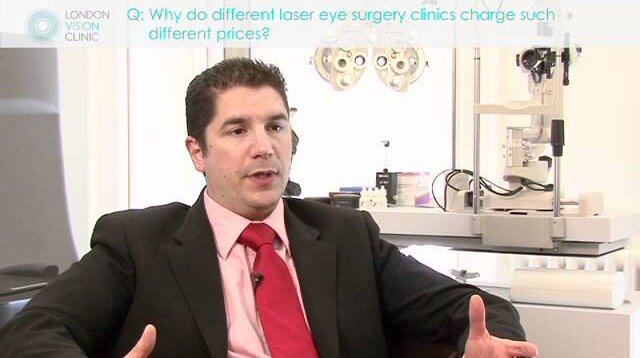Can I Have Laser Eye Surgery if I Am Pregnant or Breastfeeding?

If you have done some research into Laser Eye Surgery, you are probably aware that it is among the safest surgical procedures in the world. Moreover, it is suitable for a huge percentage of patients – particularly if you opt for a high-quality clinic with access to the best surgeons and technology. But there are times when Laser Eye Surgery may not be an option.
If you’ve been considering Laser Eye Surgery for a while, but have recently had a baby, found out that you are pregnant, or are planning on having a baby, you might be wondering if you will have to change your treatment plans.
In this article, we’re taking a closer look at how pregnancy and breastfeeding may affect your suitability for Laser Eye Surgery – and why.
Will Pregnancy Make Me Unsuitable for Laser Eye Surgery?
Unfortunately, being pregnant will usually make you unsuitable for Laser Eye Surgery in the UK and many other countries. While pregnancy has not been found to increase the risks associated with Laser eye Surgery – indeed, some patients may have had a completely successful treatment while being pregnant – there are some important things to consider.
As our expert Laser Eye Surgeon, Mr Glenn Carp explains in the video below, pregnancy and breastfeeding are essentially contraindications for Laser Eye Surgery. This is not due to any potential harm to your baby. In fact, as a localised procedure, Laser Eye Surgery poses no risk to your baby. Rather, pregnancy can trigger changes that make it harder to conduct Laser Eye Surgery effectively.
How Does Pregnancy Affect My Vision?
During pregnancy, the body undergoes a number of hormonal and physical changes. While many people are prepared for an expanding belly, fatigue, and morning sickness, many will be surprised to learn how pregnancy can also affect their eyes and vision.
Fluctuating Prescription
Some women may experience blurry vision during their pregnancy. For those that have an existing refractive error, it may seem that their prescription needs updating; however, this is a relatively common side effect.
Fluctuating vision during pregnancy may be caused by fluid retention in the eyes’ lenses and corneas. Hormonal changes may also cause collagen fibres to relax and become more supple, triggering refractive changes in the cornea.
As a stable prescription is required to ensure the best outcomes with Laser Eye Surgery, it is therefore advised that people who are pregnant or breastfeeding postpone their treatment. In most cases, vision will return to normal following childbirth or breastfeeding as the hormones in the body return to stable levels.
Age can also affect the stability of your prescription. For example, changing hormones during teenage years can lead to fluctuation in vision. For this reason, Laser Eye Surgery is also unsuitable for people under the age of 18.
Dry Eyes
Hormonal changes can also affect the structure of the tear film – a thin layer of fluid that covers the surface of the eye. This can make pregnant and breastfeeding women more prone to dry eyes. Side effects of this may be a feeling of grittiness and irritation in the eyes; it may also become more uncomfortable to wear contact lenses.
Laser Eye Surgery can also cause temporary dry eyes during the recovery period. It is therefore advisable to wait until your dry eye symptoms clear before undergoing Laser Eye Surgery. All prospective clients will be tested for dry eyes during their screening appointments to ensure all precautions are taken to achieve the best outcomes with minimal side effects.
Laser Eye Surgery Medications and Pregnancy
As Mr Glenn Carp also notes in the video above, some of the medications used during your Laser Eye Surgery treatment may be unsuitable if you are pregnant or breastfeeding. Topical antibiotic treatments are used for around a week after your procedure.
“While these topical antibiotic drugs are not known to have a negative effect on the unborn child, we tend to remain cautious. We tend to avoid performing Laser Eye Surgery when women are pregnant especially if they are within the first trimester of pregnancy.”
What Can You Do in the Meantime?
If you are attempting to become pregnant, it’s a good idea to have a consultation now to act as a reference point for checking the level of stability of your vision later. You should also make sure you have an updated glasses prescription and a pair on hand, just in case you start to experience dry eyes from wearing contact lenses.
Laser treatment is inadvisable until around 3 months after breastfeeding is complete. Increased hormonal activity during pregnancy and breastfeeding can affect vision, and the drugs used in consultation can pass across to the baby.
If you’d like to learn more about Laser Eye Surgery suitability, get in touch with one of our friendly clinic coordinators today – we’re always happy to help! Alternatively, Book a Consultation to find out if you’re suitable for treatment.



